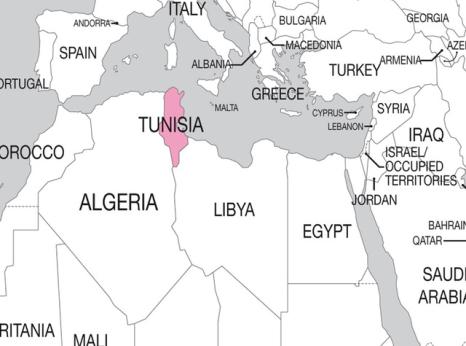Tunisia: Filmmaker Jailed For Drug Use Denied Health Care

Issam Bougerra is a 39-year-old Tunisian filmmaker from Kairouan. After studying graphic design in Tunisia, he went to the United States to pursue his passion for firm and studied cinema in Los Angeles. He directed several TV series for Tunisian and Algerian television channels. He is most known for his short film "Faracha" (Butterfly) about the story of a young boy from Kairouan, an impoverished and conservative Tunisian city, who decides to follow his passion despite everyone's disapproval. "Faracha" was critically acclaimed and won the Couple d'Or for best short fiction film at the second edition of the Mon premier Film Festival in Paris in 2022 while Isaam Bouguerra was in jail.
Issam Bouguerra was first summoned for interrogation on 20 September 2021. Tunisian authorities submitted him to a urine drug test in violation of his right to privacy. Police also searched his phone and found what they call "suspicious photos related to drugs." They confiscated his phone and laptop, and also searched his home.
Issam Bouguerra is accused under Articles 4 and 5 of Law N.92-52 on Narcotics (Law 52). Article 4 mandates one to five years of imprisonment and a fine of up to 3000 Tunisian dinars (around 900 USD) for any person who uses drugs or is found in possession of drugs or plants. Article 5 provides for 6 to 10 years of imprisonment and a fine of up to 15000 Tunisian dinars (around $4500 USD) for whoever cultivates, harvests, produces, holds, owns, appropriates, offers, transports, intermediaries, buys, sells, delivers, distributes, extracts, or manufactures drugs for the purpose of trafficking. Authorities did not provide any evidence that he was involved in trafficking or had intention to sell or profit from the drugs. If convicted, Issam Bouguerra faces up to 15 years of imprisonment.
Issam Bouguerra’s ordeal epitomises the suffering of thousands of people deprived of their liberty in Tunisia held solely for their use of drugs. According to a recent report by Lawyers Without Borders, more than 2500 individuals were detained for drug related offences in 2019, 60% of them for consumption. Prison overcrowding is long standing issue in Tunisia with prisons already exceeding their maximum capacity with around 22,000 inmates for 18,000 places, many of them for drug related offences. Tunisian and international civil society organizations have documented the wide array of human rights violations that are facilitated by punitive drug laws, including physical and verbal assault from police officers. While Law n.92-52 was amended in 2017 mainly to reduce prison overcrowding, human rights violations stemming from this law continue unabated.
Amnesty International opposes the blanket prohibition of drugs under which governments have deliberately punished, violently attacked, stigmatized and demonized millions of people with the aim of stopping them and deterring others from using drugs. Instead, Amnesty International calls upon the Tunisian authorities to take a different approach based on international human rights law and standards to ensure that drug control policies protect people, not harm them. Amnesty International calls on the Tunisian authorities to adopt new models of drug control that put the protection of people’s health and other human rights at the centre, including the decriminalization of the use, possession and cultivation of drugs for personal use, and the effective regulation of drugs to provide legal and safe channels for those permitted to access them. Such policies must be accompanied by an expansion of health and other social services to address drug-related problems as well as other measures to address the underlying socio-economic causes that lead people to engage in the drug trade such as poverty, discrimination, unemployment, ill-health, denial of education or lack of housing.
The same call was made by the UN Special Rapporteur on the right to health, who recommended that member states…”should reform domestic laws to decriminalize or de-penalize possession and use of drugs, and increase access to controlled essential medicines.” A recent study by the United Nations Working Group on Arbitrary Detention issued on 18 May 2021 recommends States to “Promptly release persons detained only for drug use or possession for personal use and review their convictions with a view to expunging their records”.